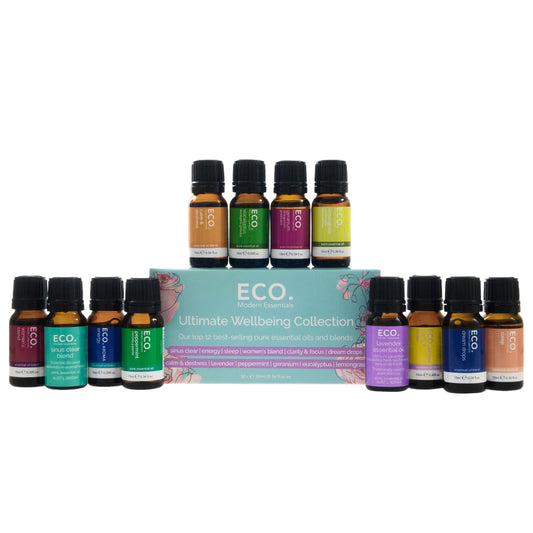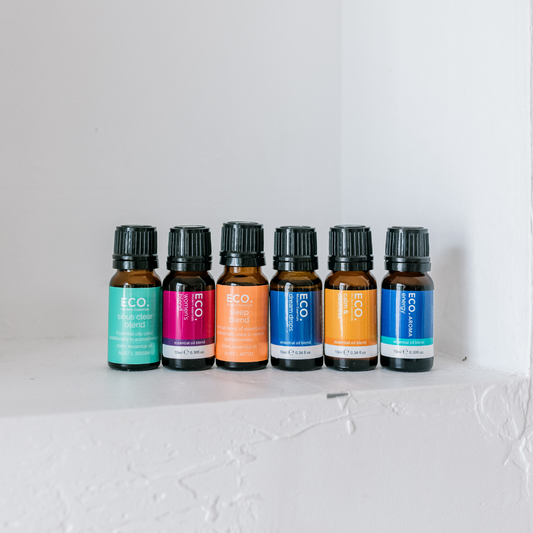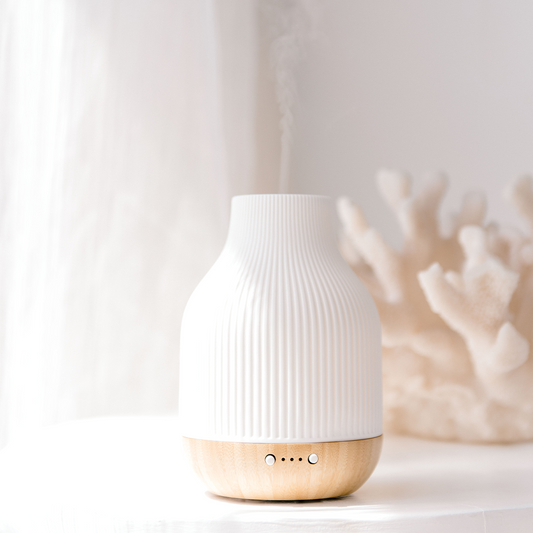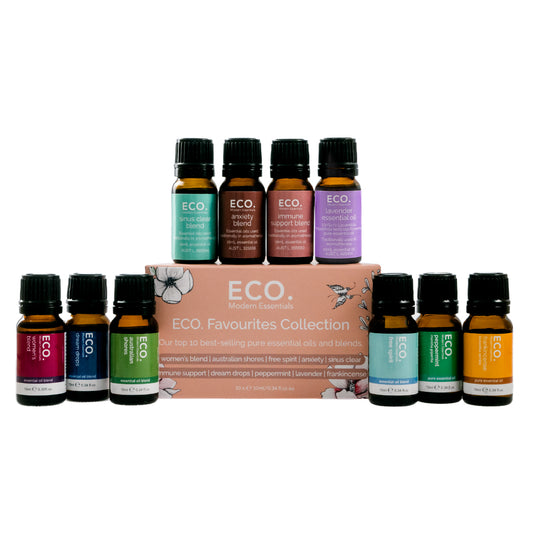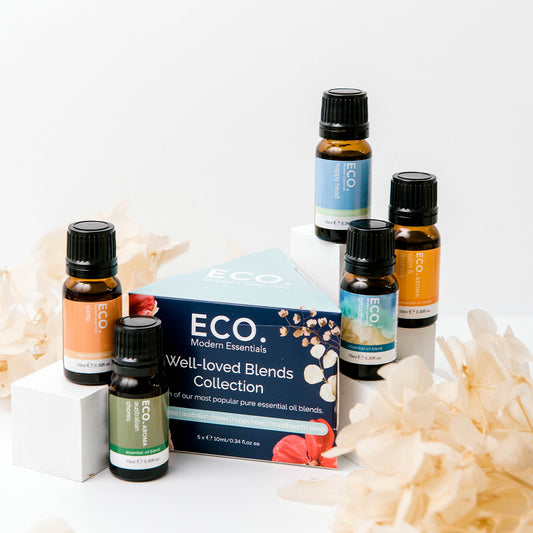Citris nobilis peel oil is sourced from Australia where the citrus industry in the local region generates jobs and provides income, helping to support the local economy.
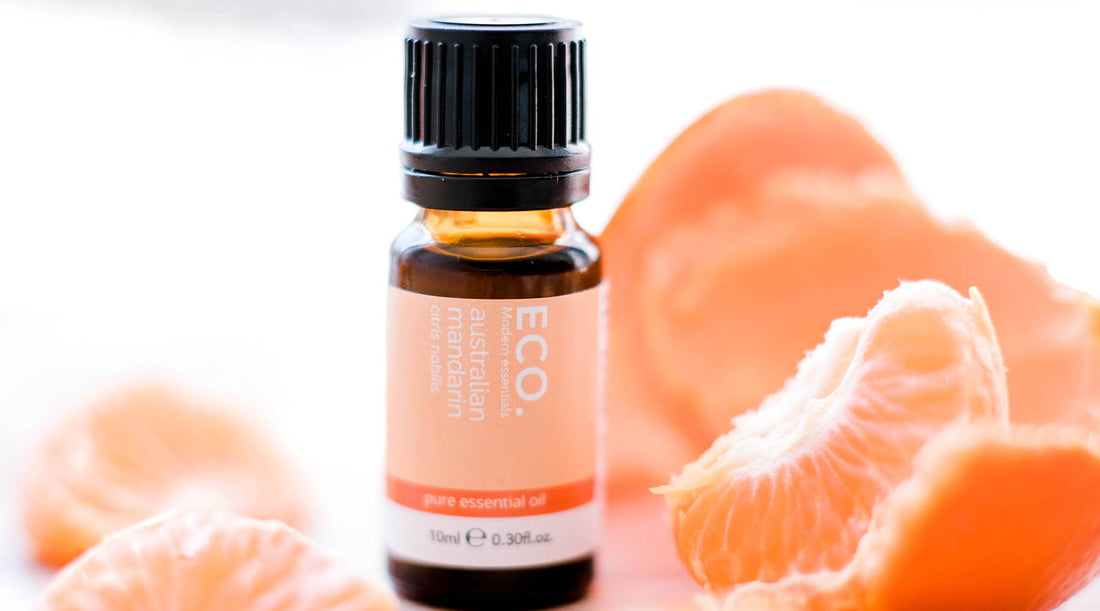
Benefits & Uses of Australian Mandarin Essential Oil
It’s easy to underestimate the humble mandarin siting in a fruit bowl. However, citrus fruits are brimming with nutrients such as vitamin C, minerals and antioxidants. Emerging studies suggest that the fruit may support heart and brain health and have protective properties against some forms of cancer. The essential oil of Mandarin also has many healing properties. When we think about aromatherapy for children or during pregnancy, this essential oil is a top choice. Parents who have overtired and grumpy little ones can utilise this gentle oil to soothe tantrums away. With its sweet and rather soft fragrance, Mandarin essential oil cocoons our loved ones in a restful and peaceful space.
Where is Mandarin essential oil from?
How is Mandarin essential oil made?
Our growers in Australia plant Mandarin trees in rows and harvest the fruit between May to October. The fruit is used for juicing and the peel is collected for essential oil extraction, reducing waste and landfill. The essential oil is in the skin of the fruit to protect it from pests and disease. The oil is extracted by cold press. During this process the producers press the peel of the fruit in a stream of room temperature water. The water and essential oil are separated in a centrifuge. Citrus essential oils are a minimally processed product and can sometimes spoil after about 12 months. It is easy to tell if an oil has gone off by the change in aroma. Some aromatherapists keep their citrus essential oils in the fridge to slow down this process especially in hot climates.
What does Mandarin look like?
Mandarin trees are vibrant, glossy and evergreen. They can grow to around 4 meters high.
What does Mandarin essential oil smell like?
Gentler than other citrus essential oils, Australian Mandarin essential oil has an intensely sweet and fresh scent.
History of Mandarin
According to genetic studies, Mandarin, citrons and pomelos, are the three citrus tree ancestors that gave rise to the other citrus fruits such as orange, grapefruit, lemon and lime. Mandarins originated in China and Indo-China. They were first exported to England in the early 1800s. Becoming very popular in Italy and Africa, Mandarins eventually made their way to Australia in 1820.
Mandarins are considered an auspicious gift to give for Chinese New Year. The fruit symbolises wealth due to its golden colour and the word ‘orange’ when spoken in Mandarin sounds like the word for ‘wealth’.[1] Mandarin oil and peel is used extensively in Ayurvedic and Traditional Chinese Medicine modalities.
What are the benefits of Mandarin essential oil?
- Mandarin may be just the right fragrance to help with feelings of nausea during pregnancy. It is light and fresh without being too sharp. Mandarin is also useful for the prevention of stretch marks. It can be added to carrier oils such as olive, avocado, wheatgerm and jojoba and massaged daily into areas likely to be affected such as the thighs and belly.
- Most children love essential oils and we can be assured that gentle Mandarin is safe for little ones. Mandarin has many useful properties that can help children stay happy and healthy. Most notable is Mandarin’s calming influence for children when they are upset or feeling a bit grumpy.
- Mandarin is particularly useful for the treatment and care of oily and acne prone skin. Oily skin tends to be more common for teenagers and can occur in humid conditions. The bacteria that causes acne can thrive in oily skin. Debris becomes trapped in pores causing inflammation and further aggravates the issue. Mandarin may be useful as a gentle detoxifier and also has antimicrobial properties to help clear up infections that cause blemishes.
- Mandarin is considered one of the more calming citrus essential oils. It is reported to have light sedating properties which makes it an excellent choice before bed. Mandarin can make a nice light change if you tend to use the same heavy sedative essential oils at night.
- Mandarin essential oil is considered a tonic for overall digestive system health. For abdominal pains caused by cramps and wind the antispasmodic action can give relief. Mandarin is also considered and anti-inflammatory and may help ease digestive upset caused by allergies or other inflammation. The essential oil can help stimulate the gallbladder and support good digestion.
- Mandarin is an uplifting aroma and yet it has a lovely soft quality that is comforting and nurturing. Mandarin is excellent to help combat stress levels without being too sedating. The sweet scent helps dispel gloominess when we are disappointed or frustrated. Like its aroma, Mandarin seems to gently smooth out life’s minor troubles and worries.
How do you use Mandarin essential oil?
- Diffuser: Add 6-8 drops of your chosen essential oil to a diffuser.
- Quick fix: A few deep inhalations from the bottle can help when you are at work, in the car or anytime you need a quick break.
- Shower: Add 2-3 drops to the corner of the shower and enjoy the benefits of steam inhalation.
- Bath: Add 2-3 drops in a dispersant such as oil, to the bath to create a relaxing atmosphere while nourishing your skin.
- Topically: Mix 1 drop of chosen essential oil with 5ml carrier oil and apply to wrists, chest or back of the neck.
- Steam Treatment: Add 2 drops of essential oil to a bowl of steaming hot water. Place your face close to the bowl and cover the back of your head and bowl with a towel to trap the aromatic vapours. Caution due to risk of burns or scalding and keep eyes covered during treatment.
Blending with Mandarin essential oil
It is hard to go wrong with Mandarin essential oil in a blend. It is an ideal oil for an aromatherapy beginner. Children enjoy making their own blends too. Essential oils such as Orange, Spearmint, Lavender, Neroli and Mandarin can make many interesting new fragrances for kids. Mandarin is a top note essential oil which means that it tends to dissipate quicker in a blend. Try adding a few more drops of a top note essential oil to a blend so that the fragrance remains more consistent as it evaporates. Mandarin adds an uplifting sweet tone to wooden or earthy oils like Patchouli and Cedarwood. The oil can improve the medicinal smell of some herbal scents such as with Clary Sage and Rosemary. When added to floral notes, Mandarin intensifies their sweetness and enhances an already glorious aroma.
Contraindications of Mandarin essential oil
Mandarin essential oil is generally considered to be safe. This essential oil can be used during pregnancy, for children and for those with serious health complaints. In general, citrus essential oils may increase the risk of sunburn after being applied to the skin. Citrus essential oil that has gone off may increase the risk of skin irritation so best to use older bottles of oil in the diffuser or in cleaning products.





